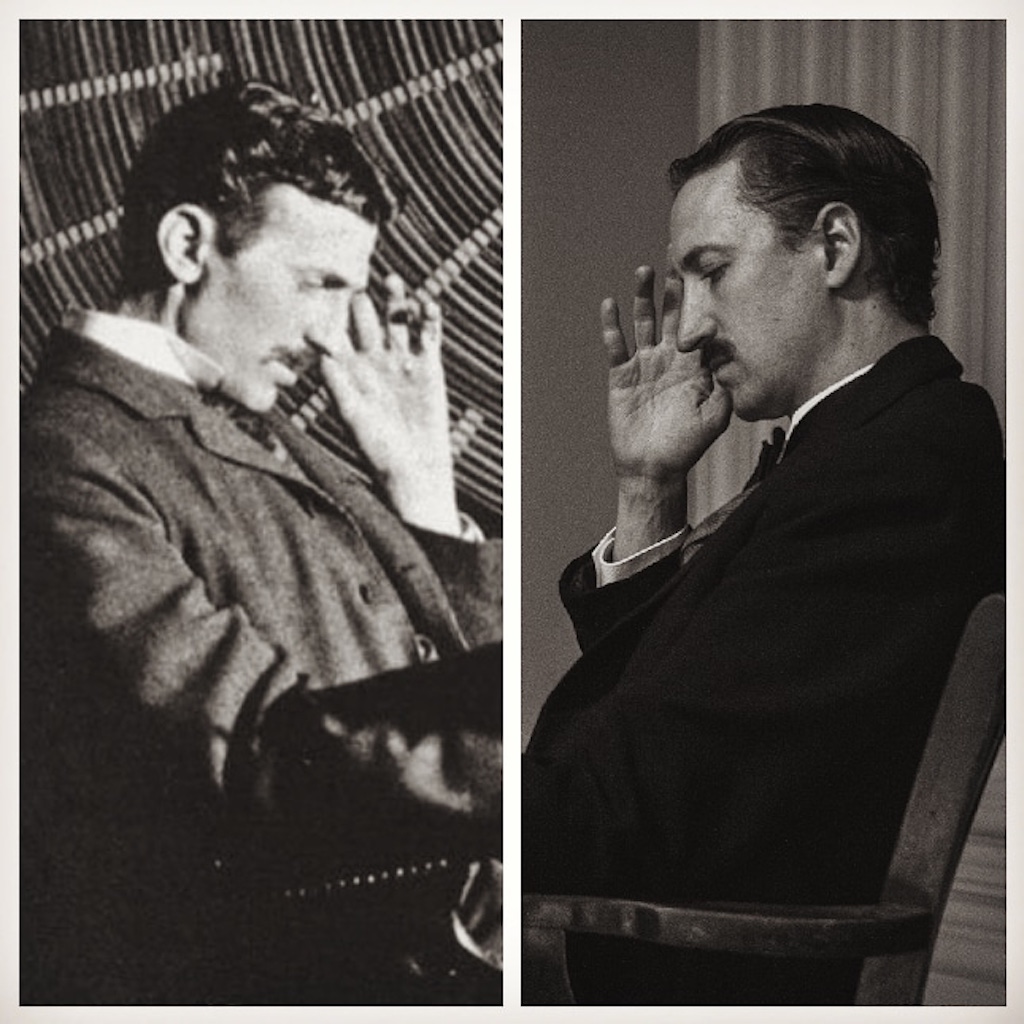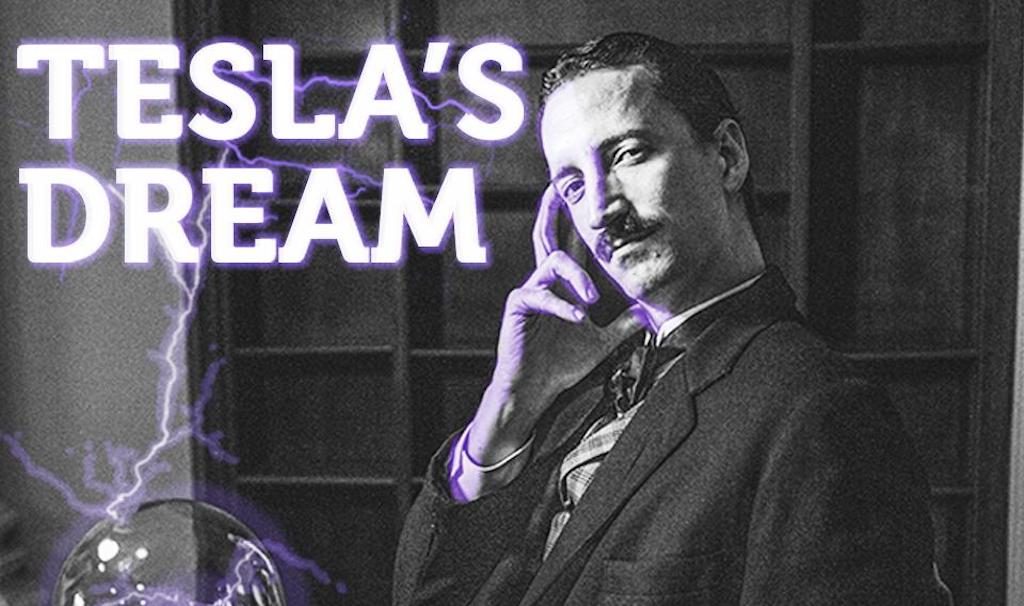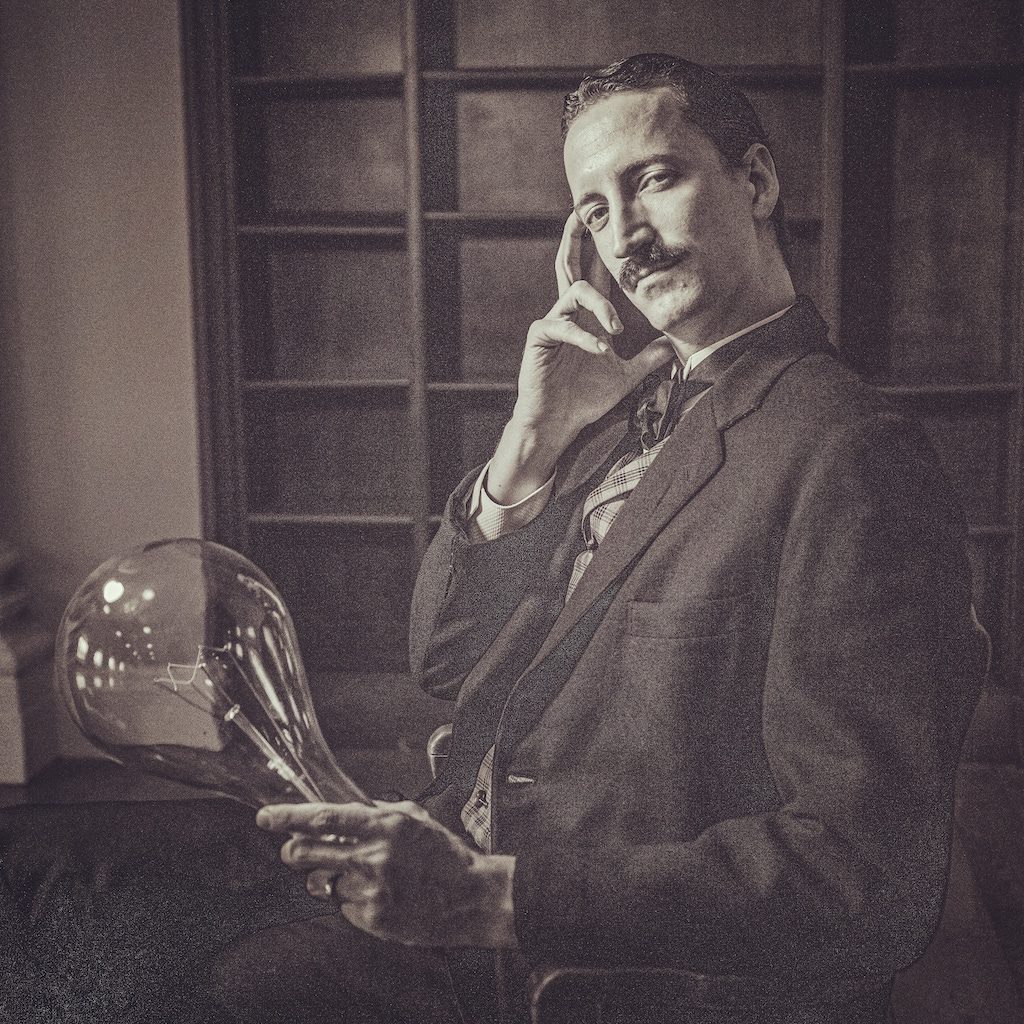
When “Tesla’s Dream” unleashes its energy at the Franklin Institute, now through September 15 (hopefully longer if the museum continues the program), there’s a charm to that sci-theater program that you don’t find with many Fringe Festival showcases. The independently produced Fringe play, created with the Franklin Institute and Norristown native, Muhlenberg College double major (theater arts and physics), actor-director David Wrigley, presents the story of Nikola Tesla, a Serbian-American inventor and electrical engineer whose controversial designs of the modern alternating current (AC) electricity supply system paved the way for the future.

His radical ideas not only shook the foundation of thought and business in its time (ask Thomas Edison who sunk millions in denying the possibilities of AC before Tesla came along), Tesla was something of a magical showman, whose biggest gig was at the original Franklin Institute in 1893 at the Atwater Kent Building at 15 South 7th Street. Delivering a lecture, “On Light and Other High Frequency Phenomena,” Tesla didn’t just discuss the passion of his work – he showed them off in a quaint, clever and, even ominous fashion. As an example, check out David Bowie’s portrayal of Nikola Tesla in Christopher Nolan’s film, The Prestige…
“It’s been a really exciting project for The Institute to be a part of as we are constantly looking for new and unique ways to engage our audiences and to bring science to life for our audience,” said Noah Lattanzi, the public relations coordinator for the Franklin Institute of “Tesla’s Dream.”
Wrigley, a Traveling Science Show Presenter, has been creating, directing, and performing science shows with The Franklin Institute since 2014. His team of fellow actors and science presenters (Creative Coach of Museum Programs at The Franklin Institute Paul Taylor, Molly Jo, Marissa Barnathan, Yannick Trapman-O’Brien), along with “Tesla’s Dream” film and sound designer Matt Lorenz, seem to genuinely be in love with their topic: Nikola Tesla’s family, upbringing, ideas and innovation.
“Tesla enthusiast, museum exhibition creator, 3D animated movie collaborator, storyteller and globally-minded artist Helena Bulaja Madunichas helped me understand Nikola Tesla better than I had before,” wrote Wrigley. “Instead of viewing him an ineffectual business person who died penniless and alone in a New York hotel room, we should think of Tesla as an artist. Helena believes that artists and storytellers are essential components of our world, for “without stories, humanity would disappear.” Tesla was not motivated by the idea of wealth building but driven by an innate desire to create, explore, tinker, and push past perceived limitations of the mind — the same desires that inspire the work of many great artists. Helena believes that humanity now has an increased capacity to explore and discover the mysteries of the universe, thanks to Tesla’s artistic vision.”
A genuinely imaginative film-scape, some handsome (if not quaintly awkward) electric tricks and just enough drama to make the educational aspects go down with a spoonful of sugar makes “Tesla’s Dream” a delight, and a must-see.


